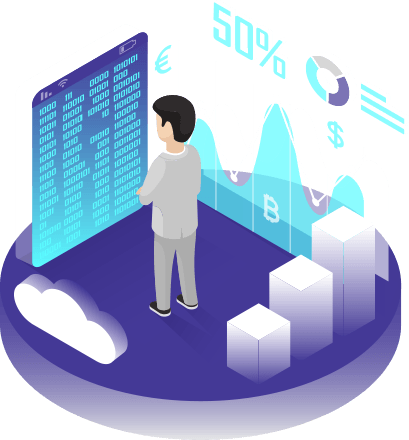Artificial intelligence (AI) and machine learning (ML) are transforming industries across the globe, and software development is no exception. The traditional process of writing and maintaining code, once driven entirely by human effort, is being enhanced and, in some cases, revolutionized by AI. AI-driven software development is no longer just a futuristic concept; it’s rapidly becoming the new norm, shaping the future of coding and accelerating innovation across the tech landscape.
Code reviews are a critical part of the software development process, ensuring that code adheres to best practices and is optimized for performance. However, code reviews can also be time-intensive and prone to human oversight. AI-driven tools can assist by analyzing code in real-time, checking for coding standards, security vulnerabilities, and performance optimizations.
In addition, AI can suggest code refactoring, helping developers improve the structure and efficiency of their code without changing its functionality. This makes applications easier to maintain and scale, ensuring long-term performance and stability.
As software applications grow more complex, keeping them running smoothly becomes increasingly challenging. AI is playing a significant role in predictive maintenance by analyzing codebases and identifying areas that are likely to experience issues before they become problematic. This allows developers to proactively address potential problems, reducing downtime and improving application stability.
Moreover, AI-driven tools can enhance continuous integration/continuous deployment (CI/CD) pipelines, automating the process of integrating code changes, running tests, and deploying new versions of software. By monitoring and analyzing system performance in real time, AI can make automated adjustments to improve application performance, ensuring that systems run optimally with minimal human intervention.
The growing importance of DevOps—the combination of development and operations practices—has led to the adoption of AI-driven solutions that streamline the entire software delivery pipeline. AI-assisted DevOps tools can monitor application performance, detect anomalies, and provide actionable insights for improving the speed and reliability of deployments.
AI and ML algorithms can analyze the effectiveness of deployments, track performance over time, and help developers optimize the infrastructure by automatically scaling resources as needed. This means that DevOps teams can focus on higher-level tasks while AI takes care of routine operational activities, increasing overall productivity and efficiency.
AI can tailor the development environment to individual developers by learning their coding habits, preferences, and working style. By leveraging data on how developers work, AI tools can create personalized experiences, from suggesting specific libraries to automatically organizing code in a way that suits the developer’s workflow.
For instance, an AI system could recognize a developer’s tendency to use certain coding patterns and suggest those patterns proactively, creating a more efficient development process. Over time, the system can learn from the developer’s choices, offering increasingly accurate suggestions.
The integration of AI in software development offers numerous benefits, including:


The future of software development is being shaped by AI and machine learning. From automating routine tasks to improving code quality and accelerating time-to-market, AI-driven applications are empowering developers to build the next generation of software. Startups and enterprises alike can gain a significant competitive advantage by embracing AI in their development processes.
At AmericanDigitel, we specialize in helping businesses leverage AI-driven solutions for software development. Whether you’re looking to automate testing, optimize your codebase, or streamline your CI/CD pipeline, we have the expertise to help you succeed. Contact us today to discuss how AI can revolutionize your software development efforts.